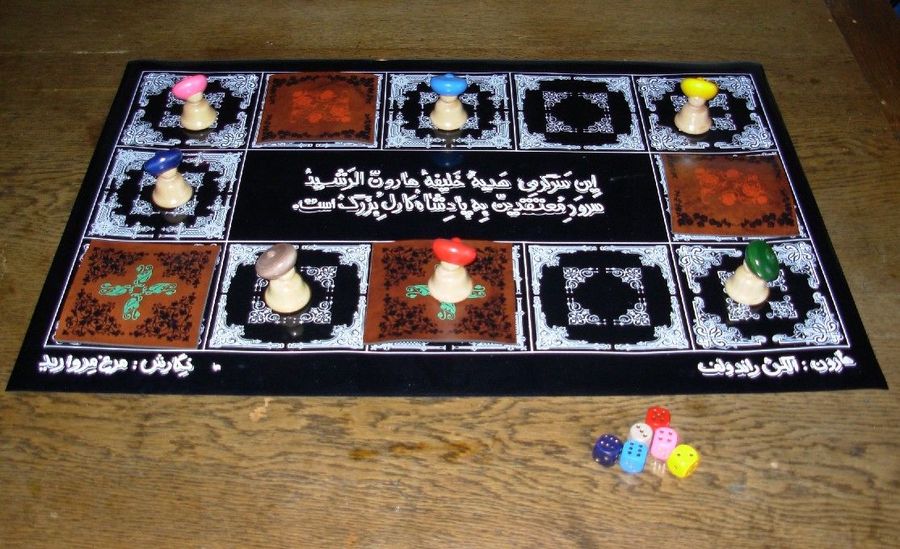Harun (1984) Board Game
Harun is a board game designed by Wolfgang Friedrich, Alex Randolph, and Franz Vohwinkel, and was released in in 1984. The game features elements of auction/bidding and dice rolling, making it a unique and engaging experience for players.
Game Components of Harun
How To Setup Harun
To set up Harun, begin by placing the game board in the middle of the playing area. Each player chooses a marker and places it at the starting position on the board. The seven heavenly bodies are distributed evenly around the orbit on the board. Players then decide who goes first, typically through a random dice roll.
Gameplay Mechanics and Game Objective
Player Experience
Playing Harun involves a mix of luck, strategy, and social interaction. The game requires players to think ahead and make tactical decisions about when to take risks and when to bid on influencing other players’ movements. The dynamic nature of the game, with its variable dice rolls and auction mechanics, ensures that each game is unique and engaging.
Pros
Cons
Personal Thoughts on Harun
Harun is ideal for those who enjoy strategic games with a social twist. It is particularly suited for groups of friends or families looking for a game that combines luck and strategy. However, it may not be the best fit for players who prefer games with more predictable outcomes or shorter playtimes. Overall, Harun offers a unique gaming experience that can be both entertaining and challenging.
We are supported by our audience. When you purchase through links on our site, we may earn an affiliate commission, at no extra cost for you. Learn more.

